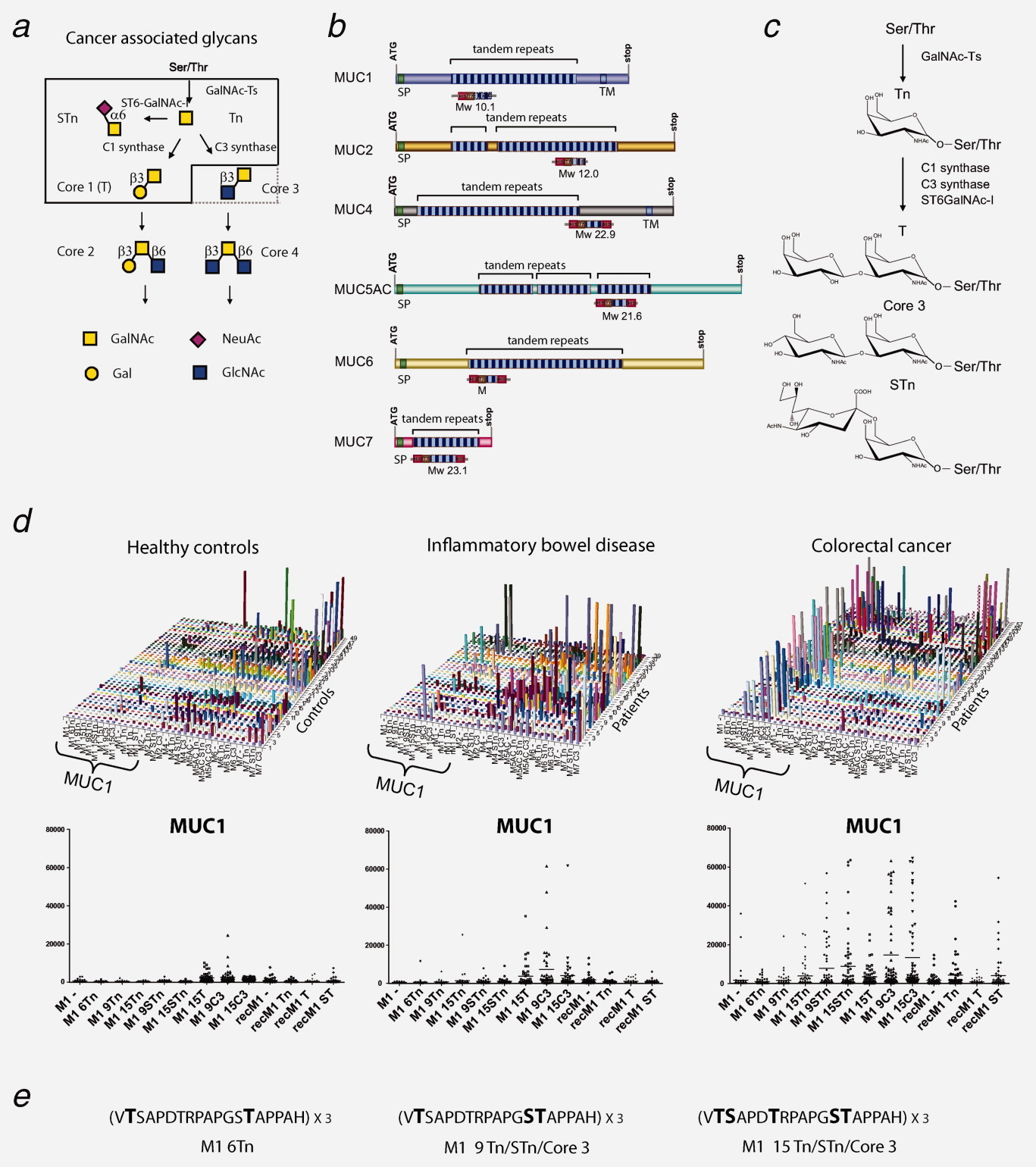Glycopeptide Microarray Service
- Antibody Specificity and Affinity Analysis
- Pathogen-host Interaction Studies
- Immunology Research
- Disease Biomarker Discovery
- Drug-glycopeptide Interaction Studies
Glycopeptide Microarray Service is a specialized analytical service that utilizes high-density solid-phase array technology to immobilize glycopeptides with specific glycosylation modifications onto a solid substrate and, through specific binding reactions with target molecules such as antibodies, receptors, or lectins, achieves high-throughput detection and quantitative analysis of glycopeptide-molecule interactions.
Glycopeptides are biomolecules formed by covalent linkage of a peptide chain with one or more glycans, combining the structural characteristics of a protein backbone with the diverse modification information of glycans, and playing important roles in cellular signal transduction, immune recognition, pathogen infection, and tumorigenesis. Since glycopeptides have critical functions in the occurrence and progression of various diseases such as cancer, infections, and autoimmune disorders, their interaction patterns and structural features have become important entry points for research in glycobiology and biopharmaceutical sciences. Glycopeptide Microarray technology can systematically analyze the interactions between glycopeptides and various biomolecules such as antibodies, receptors, and enzymes under high-throughput and low sample consumption conditions, providing support for mechanistic studies, biomarker discovery, and drug development.
Relying on a high-sensitivity signal detection system, MtoZ Biolabs provides Glycopeptide Microarray Service to rapidly screen, identify, and quantitatively analyze glycopeptide binding characteristics, which is suitable for elucidating the role of glycosylation in protein function regulation, immune recognition, pathogen invasion, and disease-related molecular mechanisms, offering strong technical support for glycobiology, immunology, pathogen research, and biopharmaceutical development.
Applications
Examples of applications for Glycopeptide Microarray Service:
Evaluate the recognition patterns of antibodies toward different glycopeptide structures for antibody optimization and quality control.
Systematically assess the binding profiles between surface proteins of pathogens such as bacteria and viruses and host glycopeptides to elucidate mechanisms of infection and invasion.
Investigate the roles of glycopeptides in antigen recognition, immune evasion, and immune regulation.
Identify specific glycopeptide-associated binding patterns to support biomarker discovery and early diagnosis.
Analyze the impact of glycosylation modifications on drug-target interactions to aid in the design and validation of glycopeptide-based or glycan-modified drugs.

Pedersen JW. et al. Int J Cancer. 2011.
Figure 1. O-Glycopeptide Microarray Detection of IgG Autoantibodies to MUC1 Glycopeptides in Patients with Colorectal Cancer.
Analysis Workflow
The main workflow of Glycopeptide Microarray Service is as follows:
1. Glycopeptide Preparation and Functionalization
Glycopeptides carrying specific glycosylation modifications are obtained through chemical synthesis or enzymatic digestion combined with chemical modification.
2. Array Construction
Prepared glycopeptides are densely spotted onto functionalized glass slides or chip surfaces and immobilized through stable covalent or noncovalent interactions to form reproducible glycopeptide microarrays.
3. Target Binding Reaction
The molecules to be analyzed are incubated with the glycopeptide array to allow binding to specific glycopeptide sites, followed by removal of nonspecific interactions.
4. Signal Detection
Signal amplification is achieved using fluorescence labeling, enzyme labeling, or nanoparticles, and data are collected with a high-sensitivity scanning system.
5. Data Analysis and Interpretation
Detection signals are normalized, statistically analyzed, and subjected to pattern recognition to generate binding profiles, which are interpreted based on glycopeptide structural information to reveal molecular recognition characteristics.
Service Advantages
High Throughput and Diversity: A single experiment can simultaneously detect interactions between hundreds of glycopeptides and multiple receptors or ligands.
High Sensitivity and Specificity: Capable of detecting low-abundance binding events and accurately distinguishing glycopeptides with similar structures.
Flexible Customization: Supports customer-defined glycopeptide probe sequences, glycan modification types, and detection conditions.
Rigorous Quality Control: Multiple quality control measures are implemented throughout the process, including glycopeptide synthesis, array preparation, signal detection, and data analysis.
High-Data-Quality: Deep data coverage with strict data quality control. AI-powered bioinformatics platform integrates all Glycopeptide Microarray Service data, providing clients with a comprehensive data report.
Sample Submission Suggestions
Sample Types: Accepts a wide range of sample types, including serum, plasma, tissue extracts, and purified antibodies.
Storage and Transportation: Samples should be stored at low temperature (≤ -20°C) and transported on dry ice, avoiding repeated freeze-thaw cycles.
Additional recommendations: It is recommended to discuss experimental objectives and sample characteristics with the MtoZ Biolabs technical team prior to submission to obtain detailed and targeted sample preparation and submission guidelines.
Related Services
Glycosphingolipid Microarray Service
How to order?







